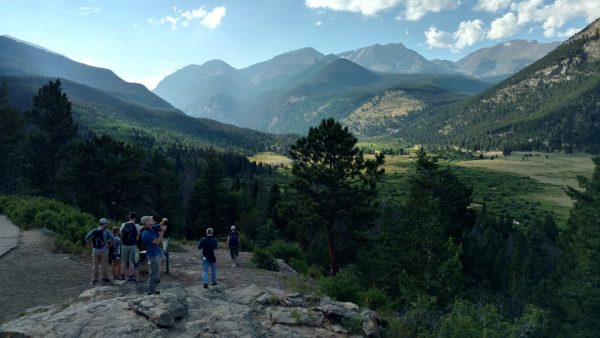Welcome
With this post, we are pleased to announce a new blog by Colorado State University’s Public Lands History Center (PLHC). In doing so we take our cue from the five-tribe Bears Ears Inter-tribal Council. Referring to the southern Utah National Monument surrounding a pair of buttes dubbed Bears Ears, the council said that there “the ancient past makes itself undeniably present.” In sum, and as we argue in our first blog post, history matters to public lands.
Therefore, we aim to keep history at the heart of present conversations about America’s public lands. We understand “history” to be composed of many pasts. We understand the enterprise of “doing history” to be collaborative—a process in which shared heritage grows out of different people articulating to one another their distinctive common pasts. American public lands preserve heritages, both shared and distinctive. We plan to facilitate that process
Why Public Lands History?
The lesson here is that studying history can inform public lands policy. We have watched the Bear’s Ears saga, as well as other public lands controversies, unfold while working with Colorado State University’s Public Lands History Center (PLHC). The PLHC is an organization devoted to learning from the past in order to preserve the future of America’s public lands. That experience convinced us that historical thinking must be injected into conversations about these national treasures. The PLHC is a vehicle to do that.

Broadly, we aim to educate the public about public lands issues. Our method is to use history to inform current public lands debates. Our audience is land managers, resource professionals, the CSU community, and anyone who values serious discourse about the future of the stories, artifacts, and experiences embedded in America’s public lands.
The blog is also a teaching tool. PLHC faculty and staff will author some of the content, but to a significant degree, it will also draw from the research of CSU graduate students and undergrads, providing them a platform to engage their scholarship with public conversations and bringing visibility to the work of these beginning scholars. This also broadens the perspectives on these issues, giving a diverse voice to the issues surrounding public lands.
Advanced graduate students, faculty, and PLHC staff with expertise in public lands history will edit the work for style and accuracy and will moderate the discussion that we hope will flow from the posts.
What you can expect as readers and commenters is fair, accurate, accessible commentary on the most pressing public lands issues of our day and a commitment never to lose sight of the larger historical context that generated them.
-Dr. Jared Orsi, PLHC Director and Faculty Council Chair
and
Dillon Maxwell, Programs of Research and Scholarly Excellence Fellow 2017-18 , MA Candidate Public History- Cultural Resource Management
Published 03/30/2018